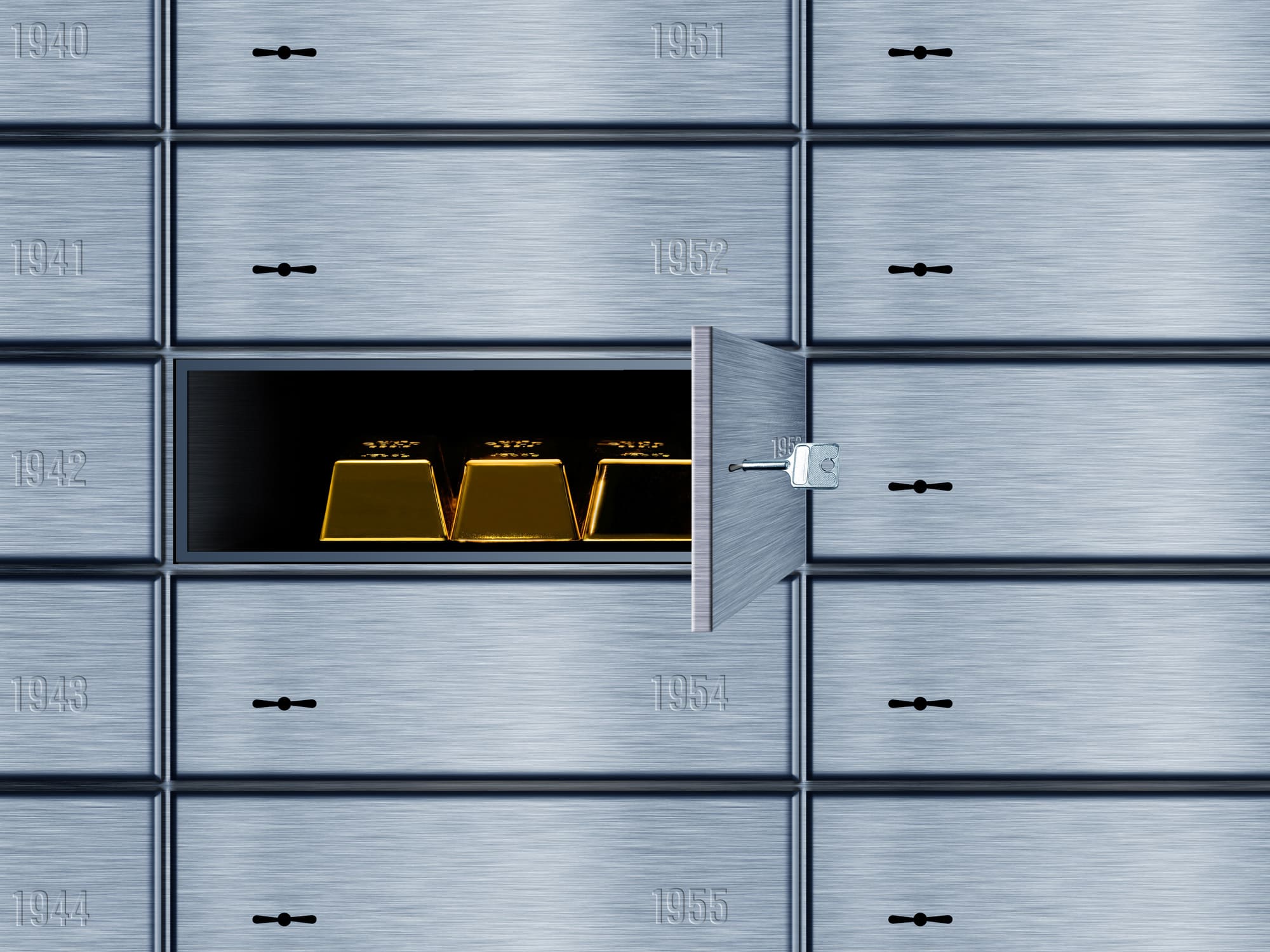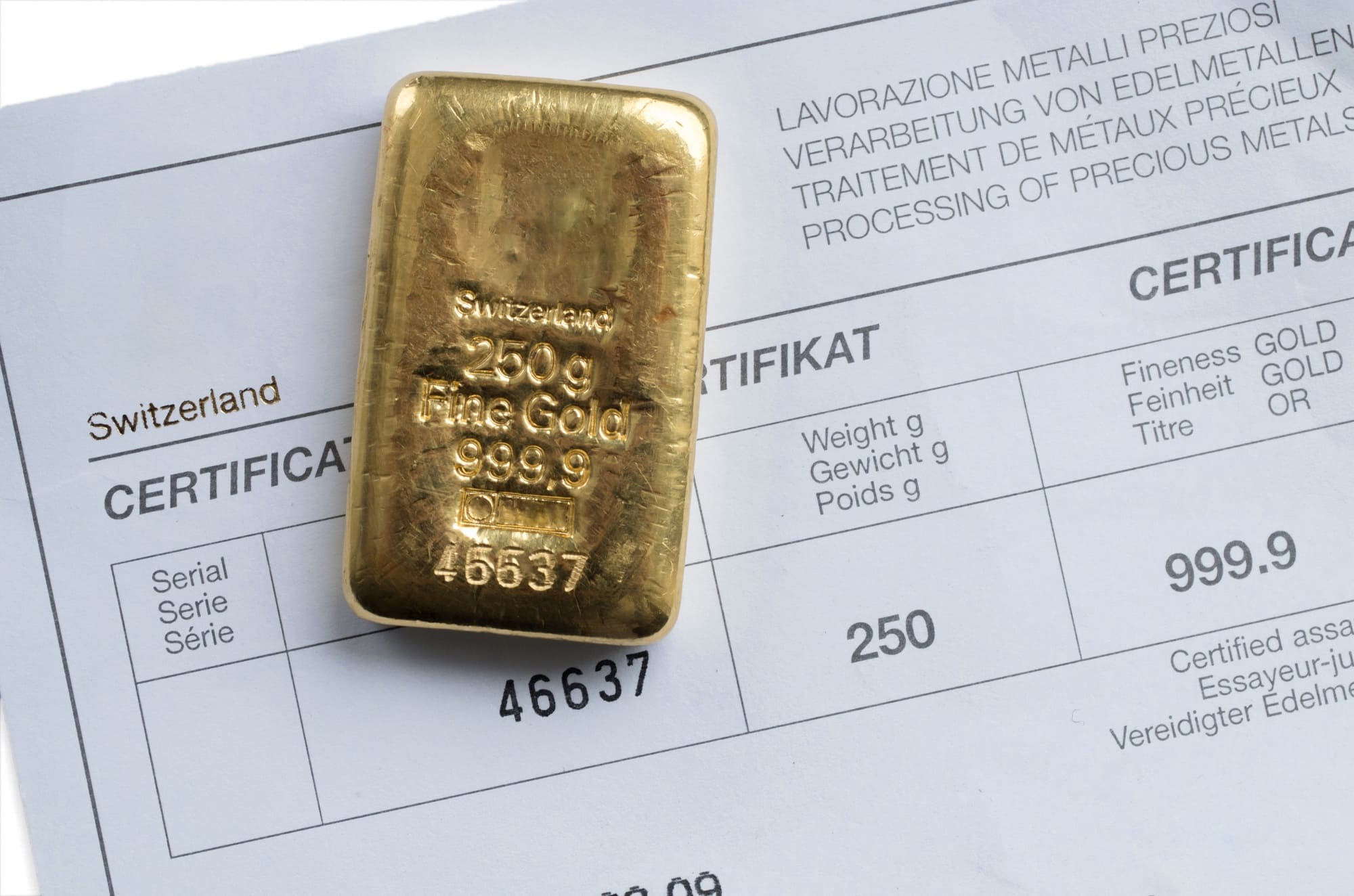Insuring the contents of a safe deposit box and providing evidence of loss
Additional information > Prevailing conditions for value storage in Switzerland and Liechtenstein > Insurance and proof of loss or damage to safe deposit boxes
Jewellery, artwork, precious metals – all valuables require proper protection, and especially in the event of an insurance claim. Safe deposit boxes offered by banks or private storage companies are an ideal option. Beyond general conditions, the insurance cover available should also be considered. This article discusses the advantages/disadvantages, possible risks, and the obligation to provide proof of loss.

© klaus rein - stock.adobe.com
Anyone who has invested in gold coins or gold bars and other valuables will soon find they represent a significant value that must be protected against loss. A look at any household contents insurance policy shows that these values can be covered for a value proportionate to the total sum insured, but there are many conditions attached. Hiding places in the garden, or inside a coffee tin in your kitchen cupboard, will be excluded under your insurance cover. In effect, professional installation of a furniture safe or wall safe will be required for valid insurance cover. But such arrangements must also meet certain security requirements for protection against burglary and theft. You can read more about this in our article on home safes.
Storage of valuables in a bank safe deposit box or with a precious metal dealer
Bank safe deposit boxes are an alternative to storage within your own four walls. Where available, these are offered to existing bank customers, or are at least linked to opening a bank account. Depending on the precise equipment, safe systems provided by financial institutions offer a high standard of security. However, the bank is only liable for losses resulting from a burglary, or natural disasters up to a specified maximum amount. In addition, the person paying for the safe deposit box is usually responsible for arranging their own contents insurance. Here, too, household contents insurance can be helpful in certain circumstances. However, additional cover for defined values of cash, jewellery, or precious metals is often required.
Precious metal dealers also often offer customers safe deposit box facilities inside their own vaults. Compared to bank safe deposit boxes, there is the advantage that your gold or silver products won’t have to be transported. By implication, it is not uncommon for such rental arrangements to be linked to purchases above a certain minimum from the dealer, and customers must again arrange their own insurance cover.
Why is full insurance cover recommended for safe deposit boxes?
Banks and precious metal dealers often provide safe deposit boxes which have inadequate insurance cover, or even no insurance cover at all. However, like everything else in life, not even ultra-modern safe deposit systems designed to the very highest security standards can guarantee absolute protection against every risk. So in order to best protect your life savings or emergency funds – even in the unlikely event of a theft or some natural disaster – it is always advisable to have adequate insurance cover.
Your precious metals, such as gold and silver coins and bullion bars, are safely stored in Swiss Gold Safe’s privately owned, bank-independent, high-security warehouses. Here, they are covered by a standard insurance included in the rental agreement, which insures your property against damage caused by theft and natural hazards (up to a sum insured of 25,000 Swiss francs). However, by their very nature, assets like precious-metal coins and bars are usually of a much higher value. The contents of many safe deposit boxes can thus exceed this maximum sum insured of 25,000 Swiss francs many times over. For this reason, it is generally advisable to supplement the basic insurance offered and adjust your sum insured to cover the true value of the contents. This avoids any risk of under-insurance, which could otherwise leave you quite seriously out of pocket in the event of a claim. Swiss Gold Safe works collaboratively with the most reputable insurers to offer clients optimal insurance protection for the storage of their valuables.
Safe deposit boxes at Swiss Gold Safe include insurance cover
Swiss Gold Safe offers on-demand safe deposit boxes in Switzerland or the Principality of Liechtenstein for both domestic and international clients. They are managed entirely independent of banks and dealers. This privately run storage company works with well-known insurance companies, so basic insurance for a sum insured of CHF 25,000 is always included in the safe deposit rental price. This can be extended to full insurance cover at any time. Swiss Gold Safe acts as the policyholder, while safe deposit box clients remain anonymous to the insurers. In the unlikely event of an insured loss, clients will therefore only be contacted by the storage provider.
This all-risks insurance covers all damage that occurs from sudden, external and unforeseen causes. This means, for example, a burglary or serious flooding. However, normal insurance exclusions still apply – so loss or damage arising from wars, terrorism, or technical interruptions to operations, is not covered.
Evidence required in the event of an insured loss
The contents of a safe deposit box are generally only known to the respective users or otherwise authorized persons. What is an advantage in principle can become a disadvantage in the event of an insurance claim – especially in the event of theft. In such circumstances, the injured party must prove their loss by means of photos, purchase receipts, or signed inventory lists, which are ideally countersigned by a person they trust. Certificates, bar or seal numbers are also suitable evidence. Experts also recommend keeping these receipts separate from your valuables.
- Tip: Clients can request a sample inventory list from Swiss Gold Safe.
When storing cash or precious metals, it is also advisable to leave such valuables in their original sealed packaging or certified bands, and to photograph them in advance. This ensures complete traceability, and also makes it easier to sell on your inventory later. In the event of a claim, insurance companies recommend that you declare the exact value of the safe deposit box and provide clear evidence to prove it. Incorrect information, on the other hand, can lead to losing your insurance cover.

© vladk213 - stock.adobe.com
Insurance Cover Risks
To maintain the value of the contents stored in safe deposit boxes, property insurance covering theft or natural hazards is essential. But all insurance cover is not the same. In addition to the amount of damage which is covered, the benefits available in an emergency are also important. The risks associated with insurance cover are summarized here:
Risk 1: Insufficient protection
Home insurance cover for your home safe is based on the physical protections available. For this reason, the contents of furniture or wall safes can only be insured up to a limited sum insured. Even bank safe deposit boxes only offer a certain level of protection. Home contents insurance cover is often linked to purchasing additional services.
Risk 2: No insurance or insufficient coverage
Banks or precious metal dealers often offer their customers safe deposit boxes without insurance, leaving the customer to arrange their own cover. Basic insurance cover only partially insures against a loss in the event of a claim.
- With Swiss Gold Safe, the insurance cover for the contents of your safe deposit box can be quickly and easily tailored to your precise requirements at any time.
Risk 3: Missing inventory lists or conclusive documents substantiating the safe deposit box contents
The owner is responsible for providing proof of the contents of a safe deposit box. The storage should therefore be properly documented from the start. Inventory lists, purchase receipts, or photos are recognized as proof of ownership in the event of an insurance claim.
Risk 4: Deposit of uninsurable items
In principle, only physical equivalent values such as those attaching to precious metals, cash or jewellery can be insured. When storing cryptocurrencies, only the data carriers themselves – such as hardware wallets, paper wallets, or ledger wallets – can be insured. Not the Bitcoin, Ether or Tether stored on them.
An overview of everything you need to know about safe deposit box insurance
- A home safe, bank safe deposit box, or a safe at a precious metal dealer, are ideal for storing precious metals, jewellery or cash.
- Household contents insurance usually includes basic cover for the contents of a safe deposit box. However, there is a real risk of under-insurance here.
- At Swiss Gold Safe, domestic and international clients receive safe deposit boxes that can be individually insured (up to a full, comprehensive insurance). The insurance contract is arranged via the private storage company.
- In the event of loss or damage, the safe deposit box owner must prove the value of the contents. Therefore, this should be documented from the start with photos, purchase receipts, or inventory lists.

